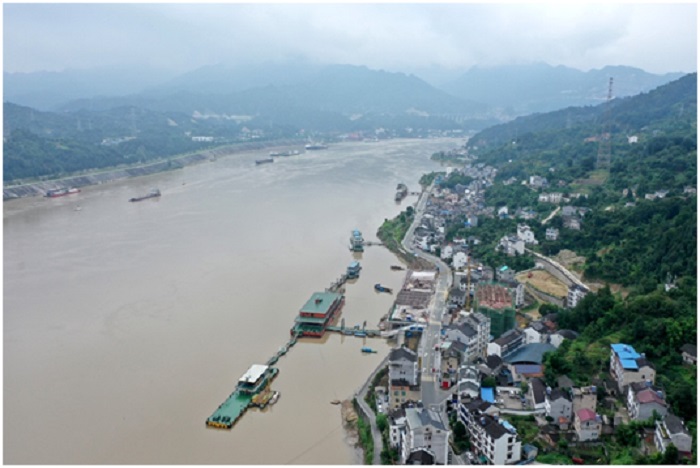



A total of 332 important aquatic reserves of the Yangtze River basin have been completely closed for fishing since Jan. 1 this year, and a ten-year ban will also extended to all natural waterways of the river and its major tributaries, as well as large lakes connected to it by 1 January 2021.
The ecological functions of the Yangtze River basin have deteriorated significantly in recent years due to intensive human activities. Rare fish species are facing a comprehensive decrease, and commercial fishery stock is almost exhausted, posing severe challenges for protection.
At present, China’s annual aquaculture production stands at 63 million tons, and only less than 100,000 tons come from the Yangtze River.
According to Yu Kangzhan, vice minister of China’s Ministry of Agriculture and Rural Affairs, the fishing ban in the Yangtze River is both an objective requirement put forward by the severe recession of aquatic resources and decreasing biodiversity in the river, and consideration for the long-term interests of fishermen.
Since 2019, provinces along the river have withdrawn nearly 80,000 fishing boats and 10,000 fishermen. Shanghai, Jiangxi and Yunnan have already completed the removal of fisherman and sealed fishing boats in advance.
A special rectification campaign that lasts a year will be launched to crack down on illegal fishing in key waters of the Yangtze River basin. According to Li Jingsheng, head of the Bureau of Security Administration under the Ministry of Public Security, the campaign will focus on key waters and time frames to strike a severe blow on illegal operations, as well as the processing and sales of illegal catch.
Yan Jun, an official with the State Administration for Market Regulation introduced that so far a special action plan has been formed to severely punish the trade of illegal catch by enhancing the monitoring of key links such as manufacturing, sales, internet market, and advertising, so as to cut the illegal industrial chain of illegal fishing in the Yangtze River basin.
To impose the ban in major waters of the Yangtze River is about not only the orderly withdrawal of 100,000 legal and certified fishing boats, but also the resettlement of nearly 300,000 fishermen. Most of the fishermen are aged and have no other skills apart from fishing, and the COVID-19 epidemic has made the transfer even harder.
Deputy director Song Xin of the employment promotion department under the Ministry of Human Resources and Social Security called for targeted resettlement plans which can create more local jobs, carry out relevant training and follow-up services, and help fishermen secure new jobs as soon as possible. Besides, those aged and unemployed farmers shall be considered people with employment difficulties and then offered with one-on-one assistance and targeted policies.


The Humanitarian Service Diamond Awards has.
A Chinese Company, Inner Galaxy Steel.


The Programme Coordinator, Regulatory, Compliance and.


A Non-Governmental Organization (NGO), Committee for.
The Trustfund Pensions Limited has chided.


The House of Representatives Committee on.
The China General Chamber of Commerce.


Senator Chuka Utazi who represented Enugu.


An Abuja based Legal Practitioner, Ugochukwu.


The African business community in Yiwu,.
Leave a Comment